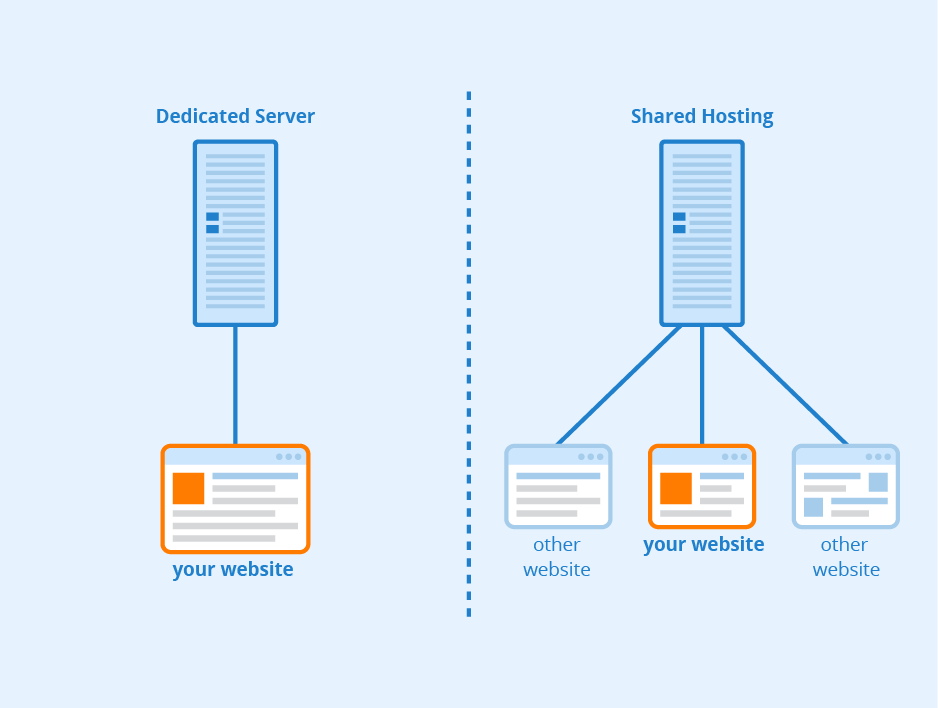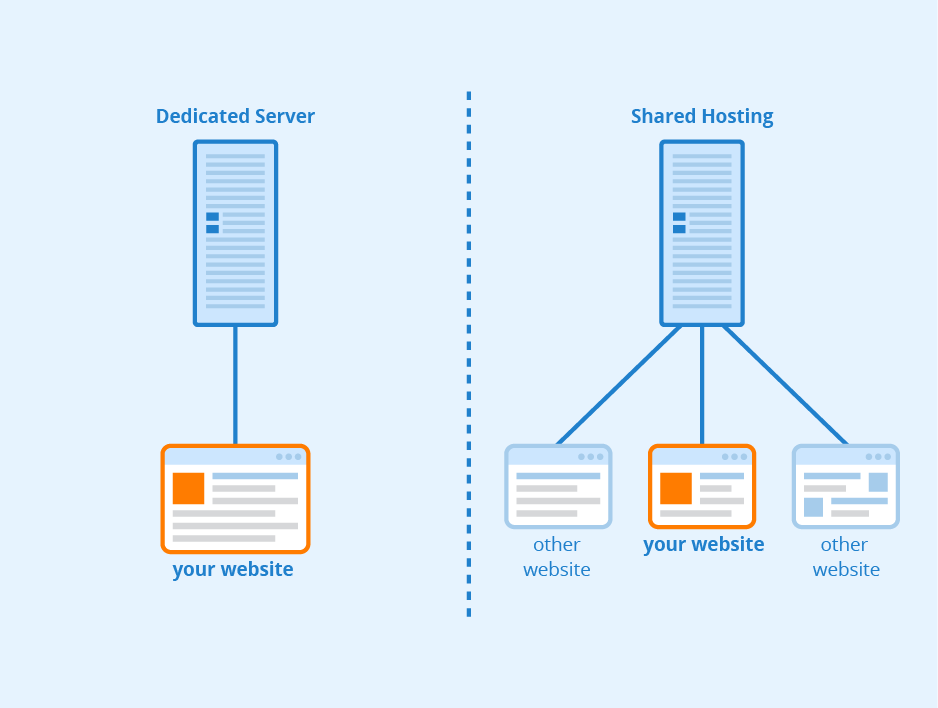VPS hosting stands for Virtual Private Server hosting. It works by using virtualization technology to divide a physical server into multiple virtual servers. Each virtual server has its own dedicated resources and operates independently, providing the privacy and control of a dedicated server at a more affordable cost. With VPS hosting, users have root access, allowing them to install, customize, and manage their own software and applications. It’s an ideal solution for businesses or individuals seeking scalability, reliability, and flexibility in their hosting environment.
Have you ever wondered how websites are able to deliver fast and consistent performance, even with high traffic? The answer lies in VPS hosting. VPS, which stands for Virtual Private Server, is a powerful hosting solution that offers the benefits of a dedicated server at a more affordable price. But how does it actually work? Let’s delve into the world of VPS hosting and understand the magic behind its reliable performance.
VPS hosting works by dividing a physical server into multiple virtual servers, each with its own dedicated resources and operating system. This virtualization technology allows multiple users to share the same physical server while maintaining isolation and security. Unlike shared hosting, where resources are shared among multiple websites, VPS hosting provides dedicated resources, including CPU, RAM, and disk space, resulting in superior performance and stability. With VPS hosting, you also have the flexibility to customize your server environment, install software, and scale resources based on your website’s needs. It’s no wonder that VPS hosting has become a popular choice for businesses and individuals who require more control and reliability for their websites.

Understanding VPS Hosting
Virtual Private Server (VPS) hosting is an increasingly popular hosting option for websites and applications. It offers a balance between the affordability of shared hosting and the control and scalability of dedicated hosting. In this article, we will explore how VPS hosting works and its advantages over other hosting options.
A VPS is a virtual machine that runs its own operating system, separate from other virtual servers on the same physical server. Each VPS has its own resources, including CPU, RAM, storage, and bandwidth, which are dedicated solely to that VPS. This isolation ensures that the performance of one VPS does not affect others hosted on the same server.
One of the main advantages of VPS hosting is the level of control it provides. Users have root access to their VPS, allowing them to customize the server environment to their specific needs. They can install software, configure security settings, and even restart the server without affecting other VPSes or the main physical server.
Virtualization Technology
In order to understand how VPS hosting works, it is important to delve into the underlying virtualization technology. There are different types of virtualization techniques used in VPS hosting, including:
- Full virtualization: This technique uses hypervisor software to create multiple virtual machines (VMs) on a single physical server. Each VM has its own operating system, allowing for complete isolation and control.
- Para-virtualization: In this approach, the virtual machines communicate directly with the host server’s hardware, bypassing the need for full emulation.
- Containerization: Containerization is a lightweight virtualization method that allows multiple containers to run on a single operating system kernel. Each container shares the same OS, libraries, and resources, but is isolated from others.
- Hardware virtualization: This technique uses hardware-based virtualization to create and manage virtual machines.
Regardless of the specific virtualization technique used, the goal is to provide each VPS with its own dedicated resources and a separate environment, ensuring reliable performance, security, and stability.
Advantages of VPS Hosting
VPS hosting offers several advantages over other hosting options:
- Scalability: With VPS hosting, users have the flexibility to scale their resources up or down as needed. If their website or application experiences increased traffic, they can easily allocate more CPU, RAM, or bandwidth to ensure optimal performance.
- Reliability: Since each VPS is isolated from others, issues or traffic spikes on one website will not affect the performance or stability of others. This ensures high availability and reliable performance.
- Customizability: Users have full control over their VPS environment, allowing them to install the necessary software, configure security settings, and customize their server to their specific needs.
- Security: The isolation between VPSes provides an additional layer of security. Even if one VPS is compromised, the attacker cannot access the resources or data of other VPSes.
- Cost-effectiveness: VPS hosting offers a balance between affordability and performance. It is more affordable than dedicated hosting, while providing better performance and customization options than shared hosting.
Choosing the Right VPS Hosting Provider
When choosing a VPS hosting provider, there are several factors to consider:
- Server hardware: Ensure that the hosting provider uses high-quality hardware with sufficient resources to support your website or application.
- Reliability and uptime: Look for a hosting provider that guarantees high uptime and offers reliable server performance.
- Scalability: Check if the hosting provider allows you to easily upgrade or downgrade your resources as needed.
- Support: Consider the level of technical support and customer service offered by the hosting provider.
- Security measures: Look for a hosting provider that implements robust security measures, such as firewalls, regular backups, and DDoS protection.
It is also important to consider your specific requirements and budget when selecting a VPS hosting provider. Compare pricing, features, and customer reviews to make an informed decision.
Conclusion
Virtual Private Server (VPS) hosting offers a powerful and flexible hosting solution for websites and applications. By leveraging virtualization technology, each VPS is isolated and has its own dedicated resources, providing enhanced performance, security, and customizability. The advantages of VPS hosting, including scalability, reliability, and cost-effectiveness, make it a popular choice for businesses and individuals alike. When choosing a VPS hosting provider, consider factors such as server hardware, reliability, scalability, support, and security measures to ensure the best hosting experience.
Key Takeaways: How Does VPS Hosting Work?
- VPS hosting stands for Virtual Private Server hosting and is a type of web hosting that uses virtualization technology to divide a physical server into multiple virtual servers.
- Each VPS operates as an independent server with its own set of resources, including CPU, RAM, and disk space.
- VPS hosting offers more control, scalability, and customization options compared to shared hosting.
- It is an ideal solution for businesses and individuals who need dedicated resources and enhanced security.
- VPS hosting works by allocating a specific amount of resources to each virtual server, allowing users to install and manage their own operating systems and applications.
VPS hosting works by dividing a physical server into multiple virtual servers, each with its own resources and operating system. This allows websites to have their own dedicated space and resources while sharing the same physical server with other websites.
With VPS hosting, you get more control, security, and flexibility compared to shared hosting. It is a cost-effective solution for businesses that need more power and resources but don’t want to invest in a dedicated server.

